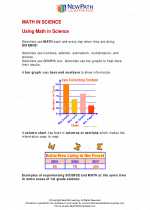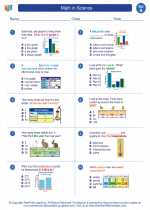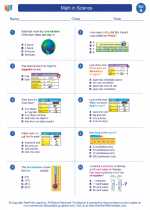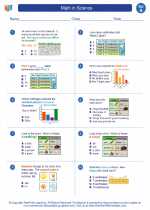Calculus Study Guide
Welcome to the world of calculus! Calculus is a branch of mathematics that focuses on rates of change and accumulation. It involves the study of derivatives and integrals, which are used to analyze functions and solve a variety of problems in science, engineering, economics, and more.
Key Concepts in Calculus
- Derivatives: Derivatives measure the rate at which a function is changing at a specific point. They are used to find slopes of curves, velocities, acceleration, and more.
- Integrals: Integrals are used to calculate the accumulation of quantities over a certain interval. They can be used to find areas, volumes, and other quantities that accumulate over time or space.
- Limits: Calculus involves the concept of limits, which is the foundation for defining derivatives and integrals. Limits describe the behavior of a function as the input approaches a certain value.
- Applications: Calculus has applications in various fields such as physics, engineering, economics, and biology. It is used to model and analyze real-world phenomena, optimize functions, and solve complex problems.
How to Study Calculus
To excel in calculus, it's important to have a solid understanding of algebra, trigonometry, and precalculus concepts. Here are some tips for studying calculus:
- Understand the Basics: Make sure you have a strong grasp of fundamental calculus concepts such as limits, derivatives, and integrals.
- Practice Problems: Solve a wide variety of problems to reinforce your understanding of calculus techniques and applications.
- Visualize Concepts: Use graphs, diagrams, and visual aids to understand the geometric and conceptual aspects of calculus.
- Seek Help: If you're struggling with any concepts, don't hesitate to seek help from a tutor, teacher, or online resources.
- Apply Calculus: Look for real-world applications of calculus concepts to understand their relevance and practical utility.
Further Resources
For additional practice and learning, consider using online tutorials, textbooks, and interactive tools to deepen your understanding of calculus.
With dedication and practice, you can master the concepts of calculus and apply them to solve a wide range of problems in the world around you.
.◂Science Worksheets and Study Guides First Grade. Math in Science
Study Guide Math in Science - 1st grade level
Math in Science - 1st grade level  Worksheet/Answer key
Worksheet/Answer key Math in Science - 1st grade level
Math in Science - 1st grade level  Worksheet/Answer key
Worksheet/Answer key Math in Science - 1st grade level
Math in Science - 1st grade level  Worksheet/Answer key
Worksheet/Answer key Math in Science - 1st grade level
Math in Science - 1st grade level 

 Worksheet/Answer key
Worksheet/Answer key
 Worksheet/Answer key
Worksheet/Answer key
 Worksheet/Answer key
Worksheet/Answer key

The resources above cover the following skills:
EARTH AND SPACE SCIENCE
Earth’s Place in the Universe
Observe seasonal patterns of sunrise and sunset to describe the relationship between the number of hours of daylight and the time of year (e.g., more hours of daylight during summer as compared to winter).